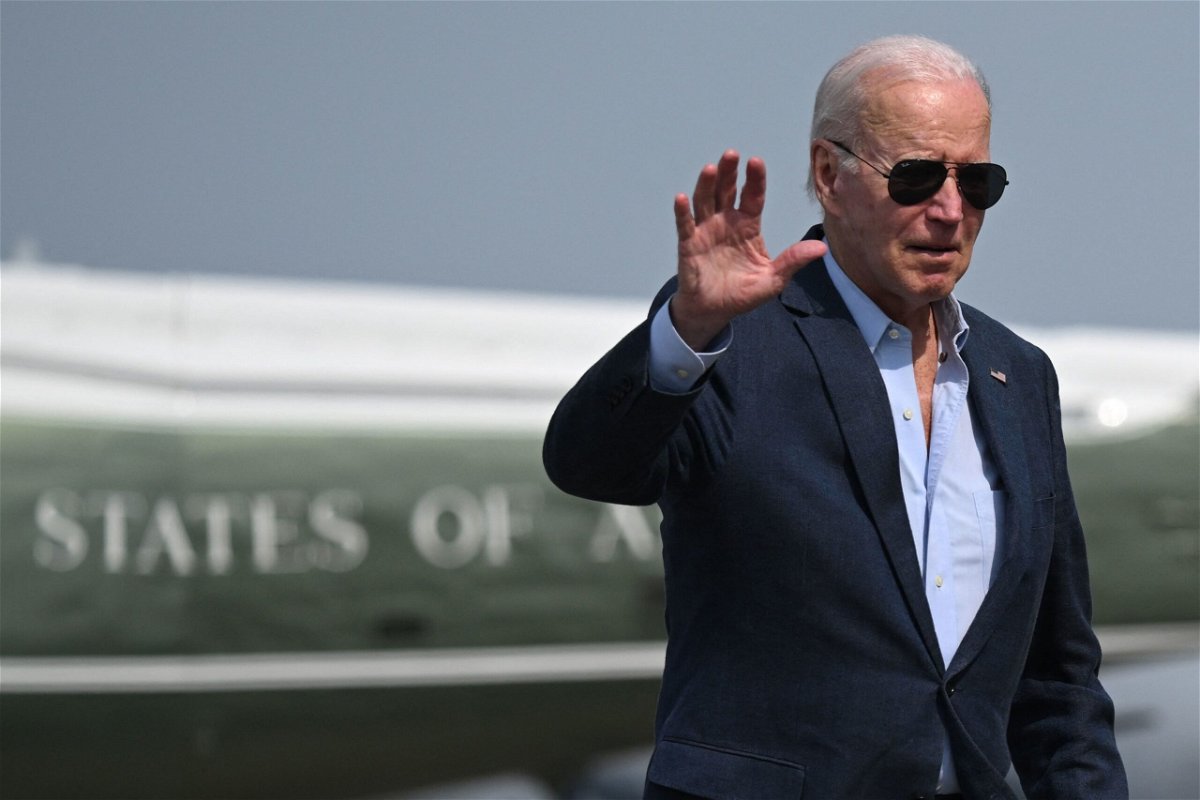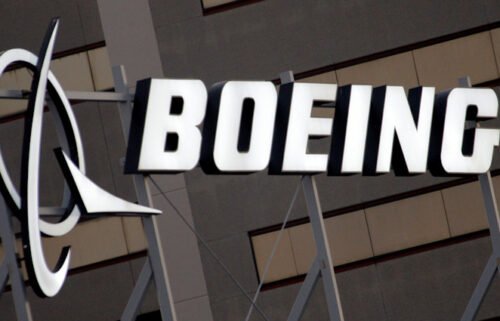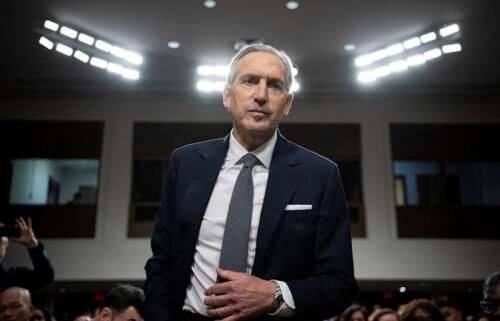Biden is skipping a Super Bowl interview for the second year in a row. It’s part of a larger media strategy

US President Joe Biden waves to the press before boarding Air Force One at Dover Air Force Base in Dover
New York (CNN) — Editor’s Note: A version of this article first appeared in the “Reliable Sources” newsletter. Sign up for the daily digest chronicling the evolving media landscape here.
President Joe Biden will be sitting on the sidelines this Sunday as the campaign for the 2024 election heats up.
The White House recently informed CBS News that Biden had chosen not to participate in the traditional pre-Super Bowl interview, the second consecutive year that the president has declined an offer to speak directly to the country’s largest assembled live audience.
Biden’s advisers have said that the decision to skip the interview was because they wanted to give the already fatigued public a break from politics during the big game. A White House official underscored that argument to me on Monday, adding that they believe the value of the interview has dropped, given it has over the years shifted from a more lighthearted media opportunity to a politics-focused affair.
Regardless, the Super Bowl snub reflects a larger Biden strategy: The president is leaning far less than his predecessors on the traditional media apparatus to get his message out, opting instead for alternative mediums to address the American people.
“We are being more creative,” a Biden campaign adviser told me Monday, “and relying less on formulas of the past.”
To that end, the Biden team has worked to make inroads with online influencers who create content for platforms like TikTok and YouTube, briefing social media personalities on key events and inviting them at times to the White House. Biden’s team has made the president available for podcasts, where he has chatted with Conan O’Brien and Anderson Cooper about grief and tragedy. And, just last week, he made calls into four Black radio stations ahead of the South Carolina primary.
“We are being less traditional because less people get their news from traditional mediums than ever before,” the Biden campaign official said.
While the rise of social media and other platforms have given politicians new ways to communicate with the public, it has also allowed those in power to bypass the traditional press and, thus, avoid scrutiny. Biden’s media strategy has renewed such questions, with critics skewering him for keeping an arm’s length from the establishment press.
Biden’s advisers insist that the president’s embrace of alternate forms of media is about diversifying his outreach, not about shielding him from hard-hitting sit downs with tough journalists. They point to interviews Biden did last year with CBS News correspondent Scott Pelley for “60 Minutes” and CNN anchor Fareed Zakaria ahead of the G7 gathering.
“President Biden is crisscrossing the country at a rate that often exceeds his predecessors’ travel schedules, talking to the American people about their lives and the issues that matter most to them and executing an aggressive, modern, all-of-the-above communications and digital strategy that highlights how he’s fighting for families and their values,” Andrew Bates, the deputy White House press secretary, told me in a statement Monday.
But the numbers point to Biden participating in far fewer interviews and news conferences than his predecessors. According to The White House Transition Project’s Martha Kumar, Biden has sat for roughly one-quarter as many interviews as Donald Trump at this point in his presidency, and one-fifth as many as Barack Obama.
While the president has regularly engaged in gaggles with the White House press corps, such forums don’t naturally lend themselves to the type of aggressive questioning that might come in a sit-down interview. For those who want to see their elected leaders regularly sit down for hard questions from the free press, regardless of political party, Biden’s strategy does not sit well.
Whether it is an effective political strategy, time will tell. While Biden advisers are more than confident in it, others are more skeptical. Frank Sesno — a former CNN White House correspondent, bureau chief, and current director of George Washington University’s School of Media and Public Affairs — argued that it could backfire, noting that while it “keeps him out of harm’s way, it reinforces the narrative that he’s running from a fight.”
“The Super Bowl is super ratings and generally a full-house free pass for a president,” Sesno told me. “The interview is more apple pie than food for thought. So for Biden to take a pass on this (so to speak) will be taken by the over-the-hill crowd as another piece of evidence that he’s not in the game. It’s safer for him — no interview means no gaffes, no viral video of a mangled answer. But it also gives another punchline to the standup comics and the armchair quarterbacks.”
The-CNN-Wire
™ & © 2024 Cable News Network, Inc., a Warner Bros. Discovery Company. All rights reserved.


